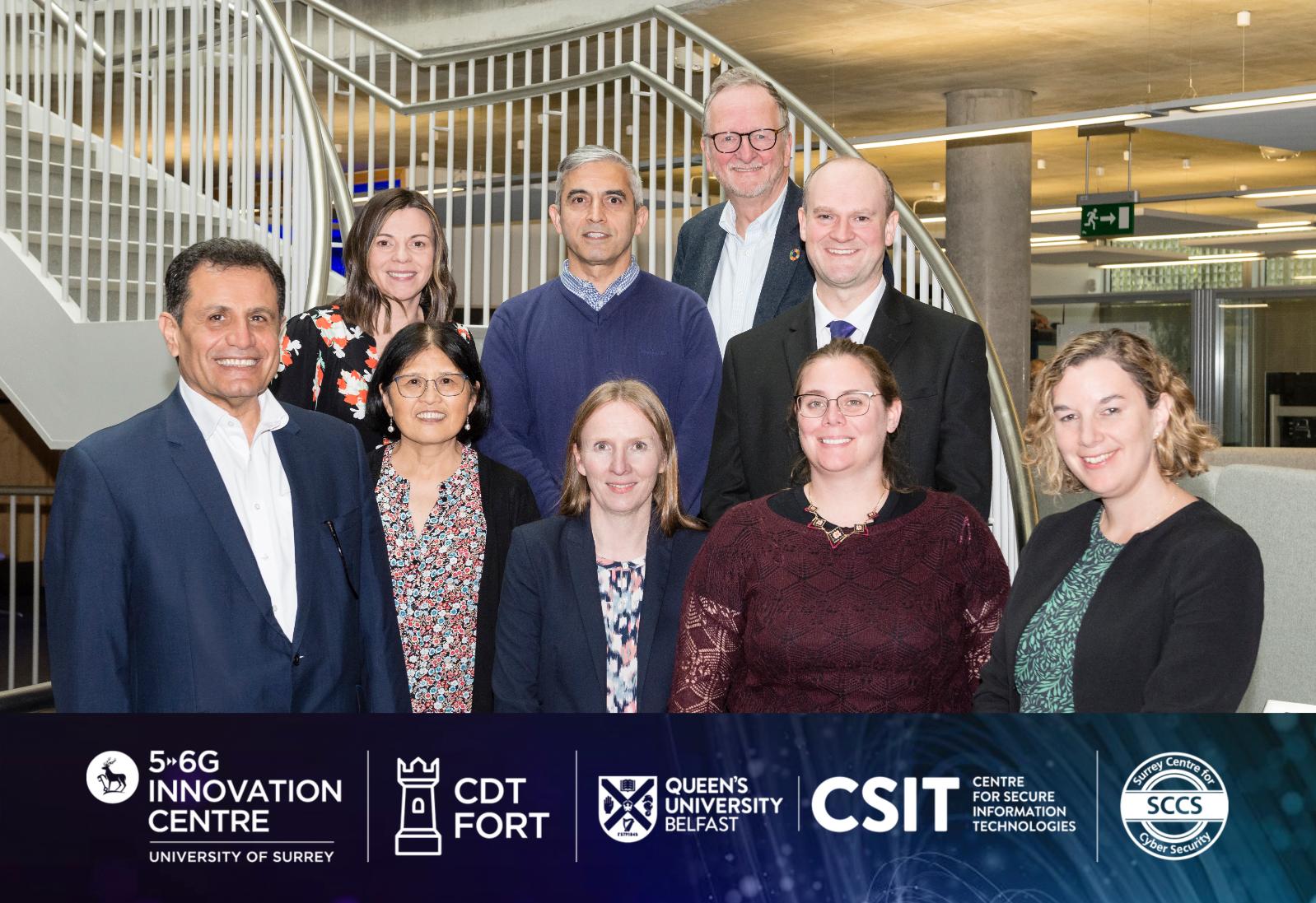£8 million academic-industry centre launched to secure communication networks of the future
Governments and industry can be more confident in the security of future telecommunications networks with the launch of a major new centre this week.

Bringing together the University of Surrey and Queen’s University Belfast with 21 significant industry partners, the new Centre for Doctoral Training (CDT) in Future Open Secure Networks (FORT) will equip at least 50 PhD researchers with the skills and expertise to drive innovation in future open and secure networks, shaping the future of the UK's telecommunications industry.
FORT is supported by £8 million in government funding, through the Engineering and Physical Sciences Research Council (EPSRC).
The launch event, hosted at the University of Surrey’s 5G/6G Innovation Centre, highlighted the importance of training postgraduate researchers in the fast-evolving fields of wireless communications, artificial intelligence (AI), cybersecurity, and networking. At least 50 PhD researchers will develop their skills and industry-ready innovations over the next eight years.
Regius Professor Rahim Tafazolli, Director of the 5G/6G Innovation Centre, used the launch to highlight the critical need to prepare the UK’s workforce for the challenges and opportunities of an AI-powered future:
“The collaboration between academia and industry is pivotal in positioning the UK as a leader in secure and resilient communications networks. The launch of FORT is just the beginning of a bold journey towards shaping the future of telecommunications. The backing of the EPSRC has been essential in establishing this partnership between Surrey, Queen’s and our 21 valued industry partners – together we have the potential to deliver a transformational shift in the UK’s position at the heart of innovation for future global telecommunications infrastructure.”
The PhD cohort studying at Queen’s University Belfast will be based at the Centre for Secure Information Technologies. Its Director, Regius Professor Máire O’Neill, commented:
“As we look to the future of telecommunications, securing our networks is more critical than ever. CDT-FORT brings together the brightest minds from academia and industry to address this challenge. By equipping the next generation of researchers with advanced skills in cybersecurity, AI, and wireless communications, we’re not just shaping the future of secure networks—we’re strengthening the resilience of the UK in telecommunications. Queen’s University Belfast is proud to be a partner in this ambitious initiative, which will play an integral role in driving innovation and safeguarding the connected world.”
The event featured demonstrations, discussions and networking sessions, providing attendees with insights into the future of telecommunications, AI, and cybersecurity. Industry partners shared their vision for the collaboration, stressing the significance of academic-industry partnerships in addressing the real-world challenges faced by the telecommunications sector.
Media
Contact Helen Lappin, h.lappin@qub.ac.uk, for further information.
